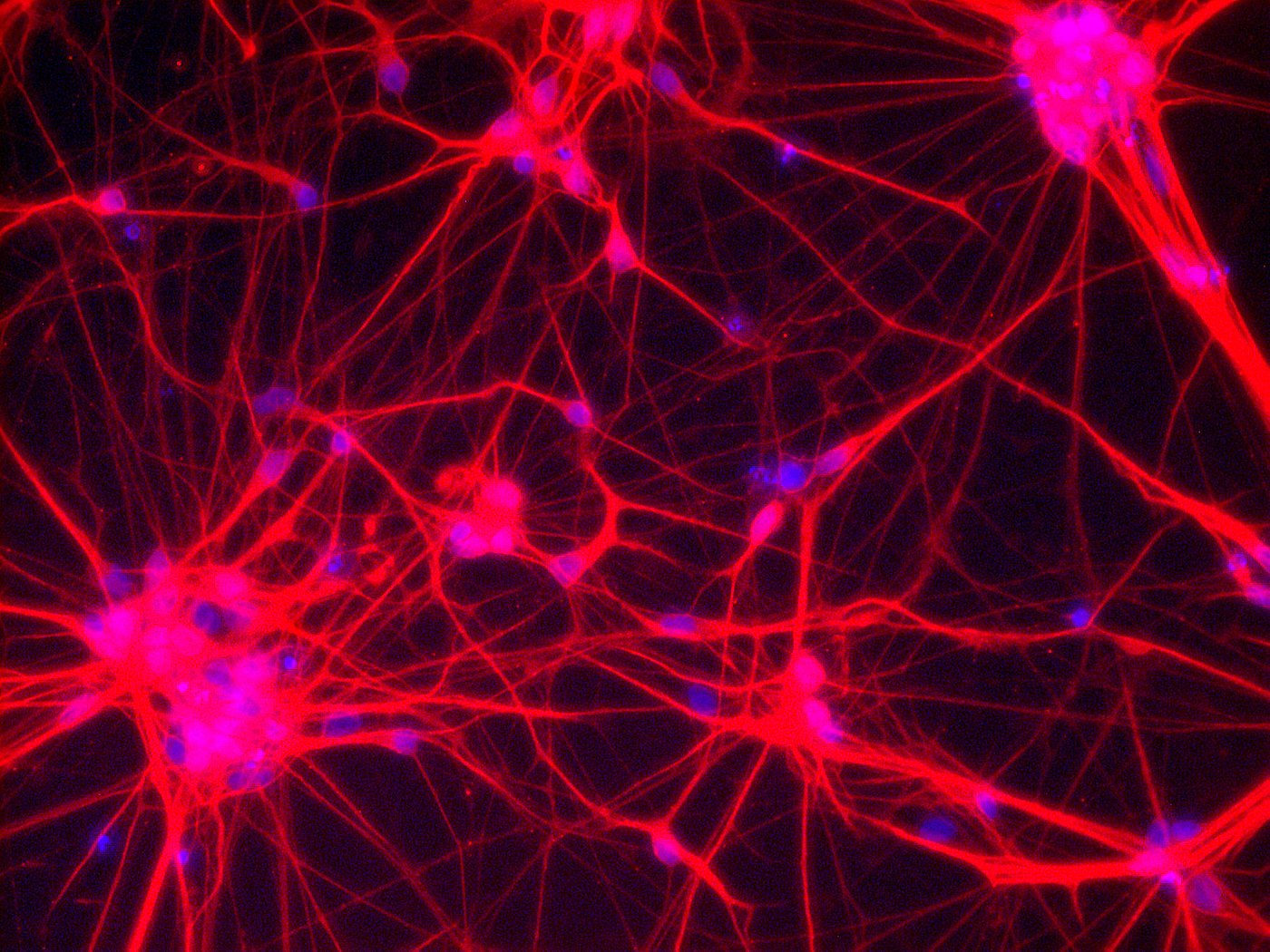
Neurons – Network of neuronal cells (Blue: nucleus; Red: neurons) [Copyright: Institute for Transfusion Medicine, UK Essen]
The event was the second ELSA symposium in the series. The aim of the series is to enable young researchers from the fields of philosophy, social sciences and law (ELSA) to engage in an interdisciplinary exchange and to provide impetus for further research projects in the field of stem cell research and related aspects. The event is organized by ELSA junior researchers themselves and is therefore close to current research topics and needs of the participants. As in December 2022, the planning and organization of this symposium was in the hands of Alina Omerbasic-Schiliro and Vasilija Rolfes, who organized an exciting program with interesting speakers on the topic of animal welfare in the context of stem cell use. A total of 19 participants attended the six lectures and discussed the topics presented.
After a biomedical presentation by Jochen Salber on the 3R concretization through 3D bioprinting of a xeno-free human bone model, Tade Spranger impressively illustrated the problems that arise from the increasing density of regulation and the simultaneous vagueness of important legal terms, including for the translation of scientific research results.
In the subsequent philosophical talks, Leonard Dung firstly addressed the development of criteria that could be used to answer the question of whether it is better to use brain organoids or animals in research or to do without both. The presentation argued in favor of the existence of sentience as a central criterion for the attribution of moral status and thus at least for an entity's initial worthiness of protection. In her contribution, Frauke Albersmeier highlighted more fundamental rational inconsistencies in the debate on the legitimacy of experiments on animals and referred to various phenomena that distort the debate, such as the use of a "rhetoric of necessity" and thus problematic framing, the use of a misleading concept of duties to help and an exaggerated emotionalization of the side critical of animal experiments in the form of the accusation of "misanthropic love of animals".
The keynote speeches from the ELSA area were concluded with a contribution by Carsten Fluck and Johannes Freise, who examined the ethical aspects of transplanting human cerebral organoids to animals and the question of how concepts that shape the moral philosophical debate (such as the six principles of animal experimentation ethics according to Beauchamp and DeGrazia and the 3R principle) are reflected in law.
In the last section of the event, Aljoscha Berve presented the mentoring program of the Stem Cell Network NRW. ELSA researchers who want to position themselves professionally in the stem cell field often lack prior biomedical knowledge. Even biomedical scientists are not always familiar with the current research issues in the ELSA disciplines. The Stem Cell Network NRW aims to counteract this with its mentoring program by bringing together young researchers from biomedicine and ELSA with mentors from the other discipline. They can provide an overview of the research situation in their own area of expertise in an uncomplicated manner. The junior researchers at the symposium were cordially invited to participate in the mentoring program. The mentoring program will also be presented to the group leaders and professors of the network at the closed meeting of the Stem Cell Network NRW in May 2024.
The symposium will end with a discussion on the utilization of the results of the event. The participants decide to publish the results in a collective publication, which will be produced in the course of the year.